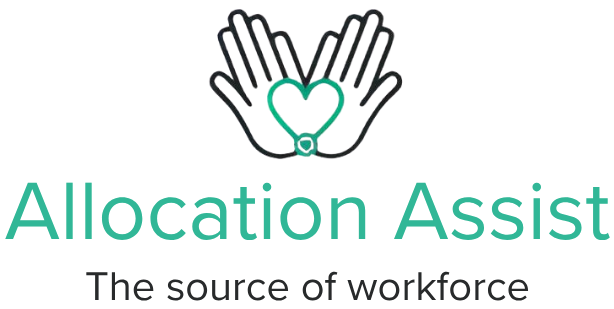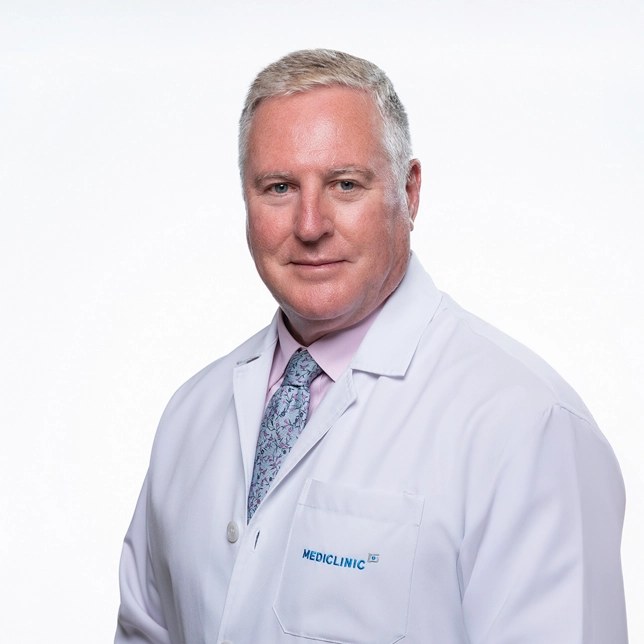With decades of international experience in ENT surgery, including a special focus on rhinology and nasal plastic surgery, Dr. Joe has built a distinguished career across South Africa, the UK, North America, and now the UAE. In this interview, he shares insights into his professional journey, his decision to move to Dubai, and his experiences adapting to a new healthcare environment and culture.
Thank you so much for your time today, Joe. Could you start by giving us a bit of background about yourself, your training, experience, and where you’re working now?
Thank you for inviting me. It’s a pleasure to be here. Well, I started my medical career in Johannesburg, South Africa, where I did my undergraduate training. I then moved to the UK for my specialist training, with the exception of two fellowships, one in the United States and one in Canada. After completing my training, I worked in London as a consultant ENT surgeon with a special interest in rhinology and nasal plastic surgery for over 25 years before deciding to move to Dubai.
Why did you choose to work at MediClinic Hospital in Dubai in particular?
I had a couple of interviews while looking for a role. The first was with a smaller hospital, where there were only three ENT consultants. One of them left and they were looking for a replacement. So I interviewed but it was clear that it wasn’t a good fit for me. Then I was introduced to MediClinic through Allocation Assist. You were very enthusiastic about it because you felt that MediClinic was probably one of the best hospital chains in the UAE. I had heard good things from colleagues who had worked there, and they all echoed the same message: excellent facilities, supportive staff, and a great working environment. That gave me the confidence to apply because I understood that they had a good reputation and it was a good service to work with.
How has your experience working in the UAE compared to other countries?
It’s been a complete change, but in many ways fantastic. There’s actually relatively fewer intermediate management staff and the majority of work that I do is managed purely by my personal assistant and stroke nurse whom I work with very closely every day. She manages everything, booking my cases, scheduling them, coordinating with insurance companies, and informing me when and where to be, as well as which patient I am operating on. It’s fantastic, especially since we didn’t have that level of support in the UK. It truly feels like a breath of fresh air and makes a significant difference.
Another key difference is that hospitals here don’t typically have junior doctors, so there isn’t anyone to handle the routine tasks, you have to manage everything yourself. This makes you far more self-sufficient, but at the same time, it allows things to run more smoothly because you’re directly involved and fully understand each step. The transition has been very different, but one of the strengths of doctors is adaptability, we know how to adjust to different environments and situations. Importantly, new doctors are well supported, with hospital staff who are helpful, welcoming, and collaborative, which has made the clinical transition remarkably smooth.
Does the patient mix or the variety of conditions you encounter here differ from what you experienced in your previous roles?
Yeah absolutely, there’s a huge difference.
First of all, the population here is very young, which I hadn’t anticipated at first. I soon realized this is because around 80% of Dubai’s population are expats who come here to work and then return to their home countries after retiring. As a result, in an average clinic we see very few elderly patients, whereas in the UK nearly half of my patients were over the age of 65–70. Here, it’s unusual to see anyone over 60.
The population here is very young, and naturally, that affects the disease patterns we see. Many conditions common in elderly patients are far less frequent, resulting in a very different patient profile. For example, in the U,K I would typically refer three or four patients in every clinic to the audiology department for hearing aids, simply because of the older population. Here, in contrast, I don’t think I’ve referred a single patient for a hearing aid in the past three months, which reflects just how young the population is.
Similarly, there is a wide diversity in the population here, with large numbers of patients from the Indian subcontinent, the Philippines, Europe, Russia, and many other regions. This mix means we encounter a broad range of patients with varying predispositions to different conditions, making the clinical experience very diverse compared to elsewhere.
Why did you decide to specialize in rhinoplasty, given that you handle both functional and cosmetic cases?
Yes, that’s correct. Rhinoplasty is an integral part of ENT training, so junior doctors in the UK are exposed to rhinoplasty surgery from an early stage. This is because we manage all functional cases, patients who have difficulty breathing, those with broken noses, deviated septums, or various congenital malformations. All of these patients are treated within ENT rather than by plastic surgeons. These patients don’t go to plastic surgeons because their cases are functional rather than cosmetic, and cosmetic procedures are not funded or supported by the NHS. As a result, all patients requiring rhinoplasty come through ENT, allowing juniors to learn the procedure from an early stage. I’ve always been passionate about this area and was fortunate to work with consultants who were true experts, which inspired me during my training. Over the years, I’ve gained extensive experience, nearly 30 years, in rhinoplasty. Complex cases that other doctors are hesitant to handle are often referred to me, allowing me to develop the skills to manage both challenging reconstructive cases and routine cosmetic procedures. This dual practice has been a consistent part of my career, providing me with comprehensive expertise in functional, reconstructive, and cosmetic rhinoplasty.
Yes, they’re meant to go hand in hand. Even if a patient is seeking a cosmetic procedure, it’s better to have a surgeon with experience in functional rhinoplasty as well.
Exactly. Your nose is there for a reason; you need to be able to breathe and smell properly. It’s no good if it looks good but doesn’t function correctly. This is why rhinologists often make the best rhinoplasty surgeons; they focus not only on aesthetics but also on proper nasal function.
And given the sheer number of rhinoplasties you’ve performed, thousands over your career, it’s clear why you’re considered one of the top specialists to consult here in Dubai.
Exactly. Of course, you need to get the word out because when you first arrive, nobody knows who you are. Once people become aware of your expertise, they start referring the more difficult and challenging cases to you. I’m really looking forward to that.
Absolutely. What factors do you think contribute to a better quality of life here in Dubai?
Yes, it’s interesting. Although I’ve visited Dubai on holiday a few times, living and working here is very different. Dubai is a fantastic city with so much to do, the shops, architecture, and organization of everything are quite amazing. I’m really looking forward to the cooler weather because there are so many outdoor activities: golf, tennis, cricket, rugby, paddle, water sports, you name it. There’s a vibrant social scene too, with thousands of excellent restaurants, bars, and shops. The city is glamorous and exciting, but it’s also the overall vibe that makes it unique.
One of the most remarkable things is that the UAE was recently voted the safest country in the world. Women and children can walk around the streets safely, even at night, which is a huge contrast to many Western cities experiencing unrest. The quality of accommodation here is excellent, and the people are very courteous, smiling, acknowledging you in the street, giving way, and showing respect. Of course, it’s important to respect Arabic culture and understand local customs, but most people adapt very well and fit in comfortably.
Absolutely. Have you been able to do a lot of networking since arriving here? Have you connected with colleagues and built a professional network?
Yes, networking is a crucial aspect of coming here, especially if you haven’t worked in the region before, as it helps you understand referral patterns and build professional connections. The hospital staff in the unit I work in are very supportive, friendly, and accommodating. We have weekly departmental meetings where everyone from the hospital comes together, someone presents, and we enjoy lunch with good banter and humor. These meetings provide an excellent opportunity to meet people and establish yourself as someone they feel comfortable referring cases to, which is vital for expanding your practice.
Additionally, getting involved in administrative panels or presenting research interests can further raise your profile. There are also several WhatsApp groups, both professional and expat-based, which help you become familiar with colleagues and participate in social and networking events. It takes some time, but because everyone here is in a similar situation, stepping out of your comfort zone is normal. What might be considered unusual or “cheesy” in Europe is simply part of integrating and fitting into society here, especially as an expat.
How have you been able to navigate the regulatory requirements here in the UAE?
That’s another story, actually, because navigating the regulatory requirements here is quite challenging. There’s a lot to manage, and you really need to understand what’s required, starting even before interviews. You have to apply for your Dubai Health Authority (DHA) registration, get all your documentation verified, and complete numerous other steps. Honestly, had I known how much work was involved, not only before arriving but also once I got here, I might not have undertaken the move.
What made a huge difference was Allocation Assist. They are experts who have guided this process countless times. They know exactly what’s required, how to do it, where and when to do it, and they provide all the necessary guidance. Their support in navigating the red tape was invaluable, and I honestly don’t think I would have come here without them.
It’s important to understand that all of this effort is part of a system that works very well. The UAE is highly regulated and organized, and everyone knows what is expected of them. While it requires significant groundwork, it ensures things run smoothly.
Beyond the regulatory aspects, moving here involves adjusting your lifestyle, accommodation, and other practical matters, which are quite different from Europe or the UK. Once again, Allocation Assist provided excellent guidance and resources, helping me understand everything I needed to do and what to expect.
Thank you so much Joe, you’re so kind

